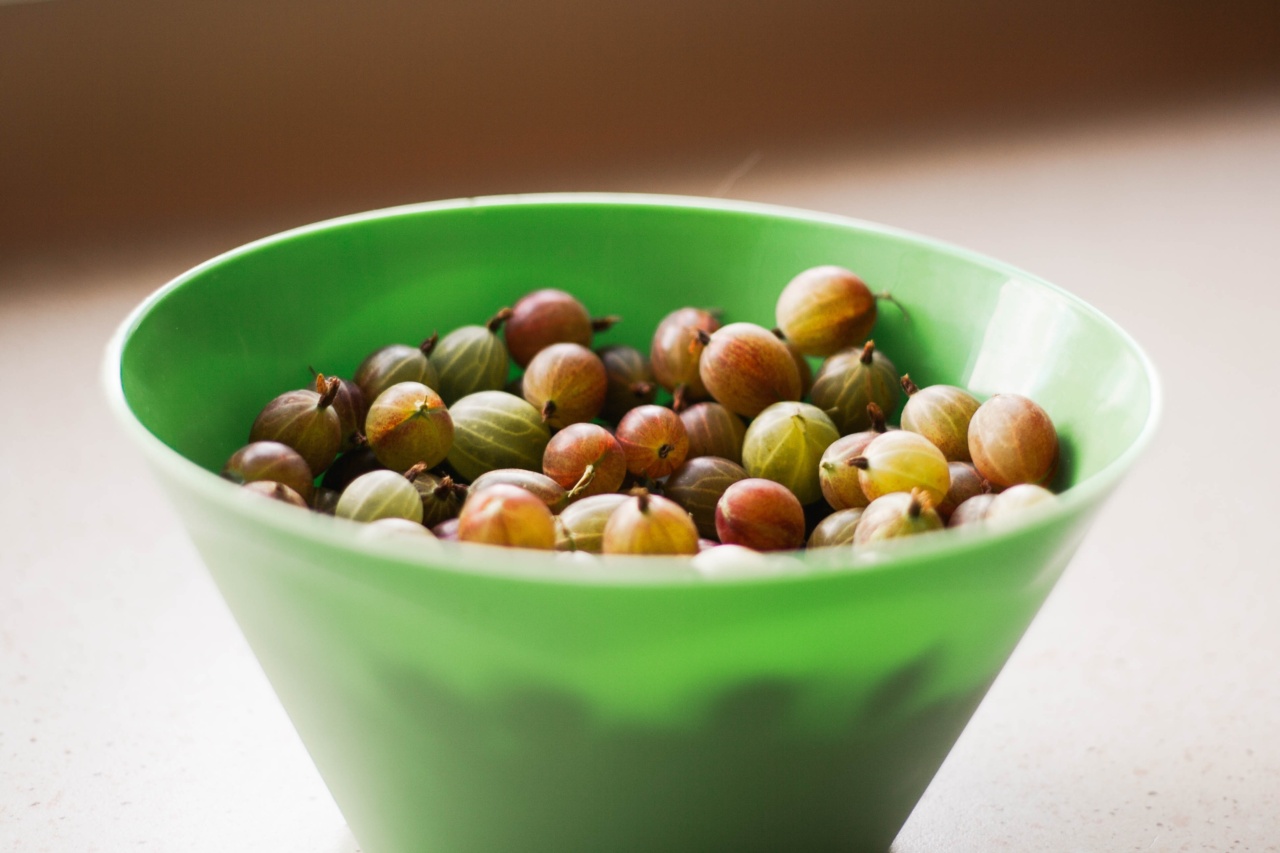It is no secret that eating a healthy diet is essential for longevity and overall well-being. While there are numerous components to a balanced diet, one often overlooked but vital element is fiber.
Incorporating high-fiber foods into your meals can have a profound impact on your health and even increase your lifespan. In this article, we will explore the many benefits of fiber and why it is paramount to prioritize fiber-rich foods.
The Importance of Dietary Fiber
Fiber is a type of carbohydrate found in plant-based foods such as fruits, vegetables, whole grains, legumes, nuts, and seeds.
Unlike other carbohydrates, fiber cannot be broken down by the body’s digestive enzymes, making it pass virtually unchanged through the digestive system.
Although fiber is not digested, it plays a crucial role in maintaining optimal health. It provides numerous benefits, including:.
1. Promotes Digestive Health
Fiber is well-known for its ability to promote regular bowel movements, preventing constipation and maintaining a healthy digestive system.
The insoluble fiber found in whole grains, nuts, and seeds adds bulk to the stool, facilitating its passage through the intestines. On the other hand, soluble fiber found in fruits, vegetables, and legumes absorbs water, resulting in softer and more easily passed stools.
Furthermore, a diet high in fiber can help prevent gastrointestinal disorders, such as diverticulitis, hemorrhoids, and irritable bowel syndrome (IBS).
Adequate fiber intake also reduces the risk of developing colon cancer, as it speeds up the elimination of waste and potentially harmful substances from the body.
2. Manages Weight and Reduces the Risk of Obesity
If you are looking to shed a few pounds or maintain a healthy weight, fiber-rich foods should be a regular part of your diet. High-fiber foods are generally low in calories, making you feel full and satisfied without consuming excessive amounts of food.
Fiber also slows down the digestion process, preventing rapid spikes in blood sugar levels and providing a prolonged feeling of fullness.
Moreover, consuming fiber-rich foods can help reduce the risk of obesity by decreasing overall calorie intake.
Research has shown that individuals who consume a diet rich in fiber tend to have lower body weight, body mass index (BMI), and waist circumference compared to those with a lower fiber intake.
3. Controls Blood Sugar Levels
For individuals with diabetes or those at risk of developing the condition, a high-fiber diet can be immensely beneficial. Fiber slows down the absorption of sugar, preventing rapid spikes in blood glucose levels.
This helps to maintain steady blood sugar levels and reduces the risk of insulin resistance, a precursor to type 2 diabetes.
Some studies have shown that soluble fiber, in particular, can enhance insulin sensitivity and improve glycemic control in individuals with diabetes.
By including fiber-rich foods in your meals, you can effectively manage your blood sugar levels and reduce the need for medication in some cases.
4. Lowers Cholesterol Levels
One of the leading causes of heart disease is high cholesterol levels. Thankfully, dietary fiber can help combat this risk factor by reducing both total cholesterol and LDL cholesterol (often referred to as “bad” cholesterol).
The soluble fiber found in oats, barley, legumes, and some fruits and vegetables forms a gel-like substance in the intestines.
This viscous substance can bind to cholesterol particles, preventing their absorption into the bloodstream and promoting their excretion from the body. By decreasing cholesterol absorption, fiber helps to maintain healthy blood cholesterol levels and reduces the risk of cardiovascular diseases such as heart attacks and strokes.
5. Supports Healthy Gut Bacteria
Inside our digestive system resides trillions of beneficial bacteria collectively known as the gut microbiota. These microorganisms play a critical role in various aspects of our health, including digestion, immune function, and even mental well-being.
Consuming a diet rich in fiber provides prebiotics, which are food sources that nourish these beneficial gut bacteria.
By promoting the growth of these good bacteria, fiber helps maintain a healthy balance in the gut microbiota and supports overall gut health.
6. Reduces the Risk of Chronic Diseases
Studies have consistently demonstrated that a high-fiber diet is associated with a reduced risk of chronic diseases. Consuming fiber-rich foods has been linked to a decreased risk of developing conditions such as:.
- Heart disease
- Stroke
- High blood pressure
- Type 2 diabetes
- Obesity
- Colorectal cancer
- Breast cancer
- Diverticular disease
By incorporating a variety of fibrous foods into your meals, you can significantly decrease the likelihood of developing these potentially life-threatening conditions.
7. Promotes Longevity
Perhaps one of the most compelling reasons to increase your fiber intake is its association with increased longevity. Several large-scale studies have shown that individuals who consume higher amounts of dietary fiber have a lower risk of mortality.
A study published in the Archives of Internal Medicine analyzed data from over 388,000 participants and found that for every 10 grams per day increase in fiber intake, there was a 15% reduction in the risk of dying from any cause.
The same study also revealed a 10% decrease in the risk of dying from cardiovascular diseases for each 10 grams of fiber consumed daily.
Another study published in the British Medical Journal analyzed data from over 1.6 million participants and reported similar findings.
The researchers concluded that higher fiber consumption was associated with a significantly lower risk of developing chronic diseases and a lower overall risk of mortality.
Fiber-Rich Foods to Add to Your Diet
Now that you are aware of the multitude of benefits fiber offers, it is important to know which foods are excellent sources of this crucial nutrient.
By incorporating the following fiber-rich foods into your diet, you can reap the rewards and significantly improve your health:.
- Fruits: Berries, pears, avocados, apples, and oranges
- Vegetables: Broccoli, Brussels sprouts, carrots, kale, and spinach
- Whole Grains: Oats, quinoa, brown rice, whole wheat bread, and whole grain cereals
- Legumes: Lentils, chickpeas, black beans, and split peas
- Nuts and Seeds: Almonds, chia seeds, flaxseeds, and sunflower seeds
By incorporating a variety of these fiber-rich foods into your daily meals, you can easily meet your recommended daily fiber intake and unlock the full potential of this remarkable nutrient.
Conclusion
It is clear that incorporating more fiber into your diet is a simple and effective way to improve your overall health, manage weight, and increase your chances of living a longer life.
Fiber offers a multitude of benefits, from supporting digestive health to reducing the risk of chronic diseases like heart disease and diabetes.
Remember to start slowly if you are not accustomed to a high-fiber diet and gradually increase your fiber intake over time.
Additionally, make sure to drink plenty of water throughout the day along with your fiber-rich meals to aid in digestion and prevent any potential discomfort.
By prioritizing fiber-rich foods and making them a regular part of your diet, you are making a conscious investment in your health and well-being.






























